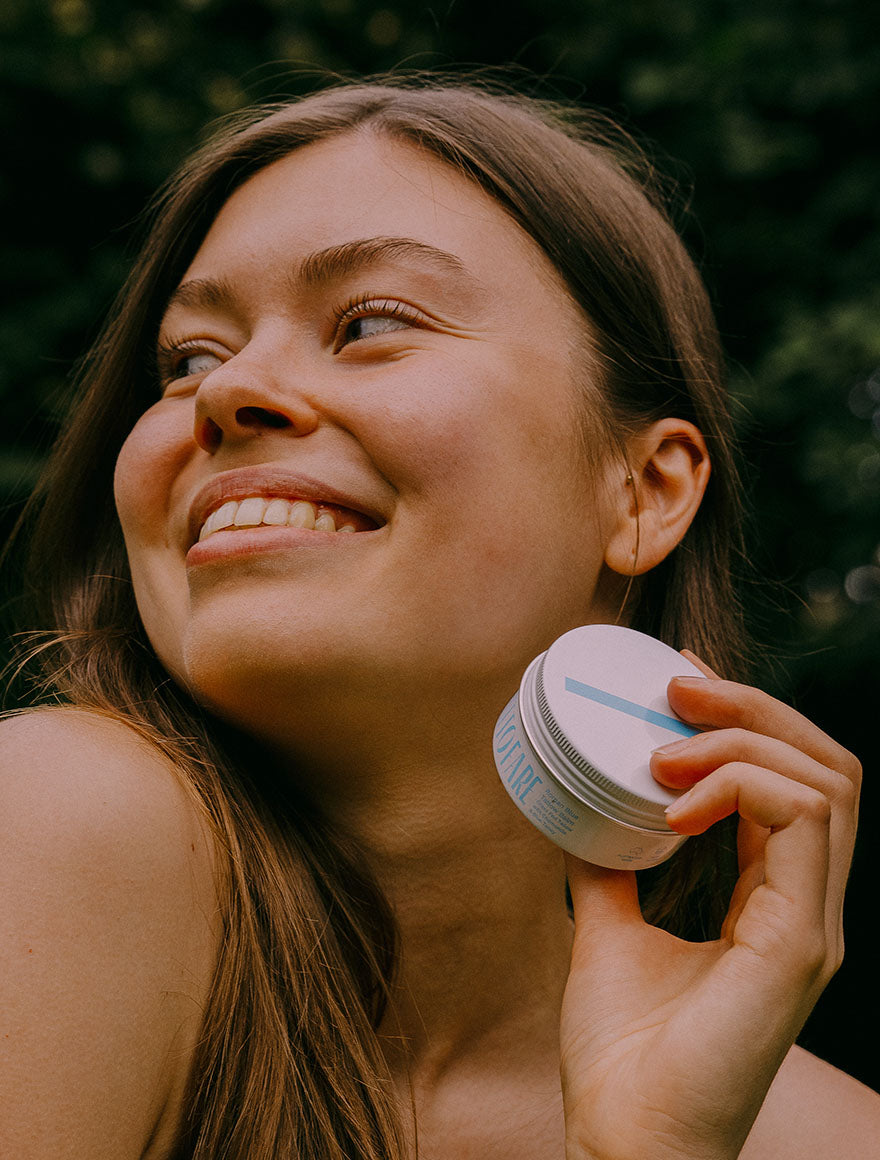Good quality, uninterrupted sleep is a pillar of our physical, mental and emotional health. Entering a deep sleep is restorative. It allows damaged cells and tissues to undergo repair and supports healthy immune system function.

During the deeper stages of sleep, certain hormones are released that stimulate collagen synthesis, which helps improve our skin integrity, the health of our joints and the integrity of our gut lining.
The glymphatic system – the brain’s lymphatic system or waste clearance system – only becomes active when we are sleeping. So, poor sleep can also contribute to a build-up of toxins in the brain that are damaging to our neurons.
Not sleeping long enough and poor sleep quality causes daytime sleepiness and can impair our cognitive function – making it harder to think clearly or focus on tasks. Ongoing sleep issues have even been linked to a number of chronic illnesses including type 2 diabetes, obesity, metabolic syndrome, high blood pressure, dyslipidemia (unhealthy cholesterol levels), cardiovascular disease, depression and anxiety.
Sleep issues may include difficulty falling asleep, waking through the night, going to sleep too late, waking too early and poor sleep quality. Creating better habits around sleep/wake times can be a helpful way to improve sleep quality. But there are a number of other dietary and lifestyle recommendations that can improve the way we sleep. This blog describes holistic ways to improve your sleep quality.
Creating a calming bedtime ritual including soft music, diffusing lavender essential oil, self-massage, journaling and meditation will help you associate bedtime with feelings of calm and serenity.

Go to bed and wake up in sync with natural light cycles
When we are only exposed to natural light, like when we go camping, our circadian rhythm (sleep-wake cycle) naturally becomes synchronized to sunrise and sunset. This helps us to stay awake during the day and go to sleep when it becomes dark.
Restructuring our bed times so that we’re going to bed and waking up in sync with natural light cycles can help maintain a balanced circadian rhythm. Consistently following a sleep schedule can also help to optimise sleep-wake homeostasis.
To shift your current rhythm it may be more helpful to introduce an earlier wake time, rather than forcing an earlier sleep time. Exposing your eyes to bright daylight first thing in the morning and throughout the day (without sunglasses) also helps to reset the circadian rhythm and increase melatonin release in the evening, supporting sleep.
Restrict your exposure to blue light at night
Electronic devices with screens such as laptops, smartphones, tablets and TVs and the lighting in our homes emit artificial light, high in blue light. Blue light disrupts our circadian rhythm by impacting the production of melatonin – a hormone that plays an important role in the regulation of sleep.
In the world we live in today, it’s impossible to completely avoid exposure to artificial blue light.
There are however ways we can reduce our exposure to improve the quality of our sleep:
- Use a blue light blocking filter like FLUX on your computer screen at all times – this is a free download on the website www.justgetflux.com
- Avoid using screens at least 2 hours before bedtime
- Reduce the backlighting on your phone and set up night-mode to switch on automatically
- Invest in a pair of blue light blocking glasses or if you already wear glasses, add a blue light blocking filter next time you’re due for a lens change
- Use low lighting in the evening or blue-blocking light bulbs such as amber, red or low blue light bulbs
- Make your bedroom as dark as possible at bedtime by using blackout curtains, an eye mask and switching off any light emitting devices e.g. alarm clocks
Only use your bed for sleep and create a calming bedtime ritual
Creating a calming bedtime ritual including soft music, diffusing lavender essential oil, self-massage, journaling and meditation will help you associate bedtime with feelings of calm and serenity.

Manage your stress levels
When you’re chronically stressed, you spend a big part of your day engaging the sympathetic nervous system (SNS), which is the fight or flight branch of the autonomic nervous system. This makes it difficult to activate the parasympathetic nervous system (PNS) – rest-and-digest branch of the autonomic nervous system, required to fall asleep at night.
High stress levels and anxiety also contribute to poor sleep quality, reducing the length of time you spend in deeper sleep stages and disrupting REM sleep.
Finding ways to reduce your stress levels, including taking on less, delegating tasks and adopting mind-body-practices like meditation, yoga, deep breathing and time in nature will improve the quality of your sleep.
Eat more carbohydrates in the evening
The brain needs the amino acid tryptophan to produce neurotransmitters melatonin and serotonin which are involved in regulating our sleep/wake cycles. We get tryptophan from eating protein, however carbohydrates are actually required to increase the uptake of tryptophan by the brain.
Eating a meal that is rich in complex carbohydrates such as root vegetables and wholegrains a few hours before bedtime boosts tryptophan levels in the brain and the production of sleep-inducing neurotransmitters.
Incorporate glycine-rich foods
Glycine is an amino acid abundantly found in foods rich in collagen – including cartilaginous cuts of meat, bone broth, gelatin and eggs. Glycine stimulates the production of serotonin, involved in the production of melatonin and sleep regulation. Studies have shown that boosting glycine improves sleep quality and reduces symptoms of insomnia.

Increase your magnesium levels
Magnesium can help to alleviate stress and anxiety due to the calming effect it has on the nervous system. It also relaxes tightness and tension in our muscles, which can disturb our sleep. A number of studies have shown that those suffering from insomnia have low magnesium levels and that increasing magnesium through diet and supplementation improves sleep quality and can be used as a treatment for insomnia.






